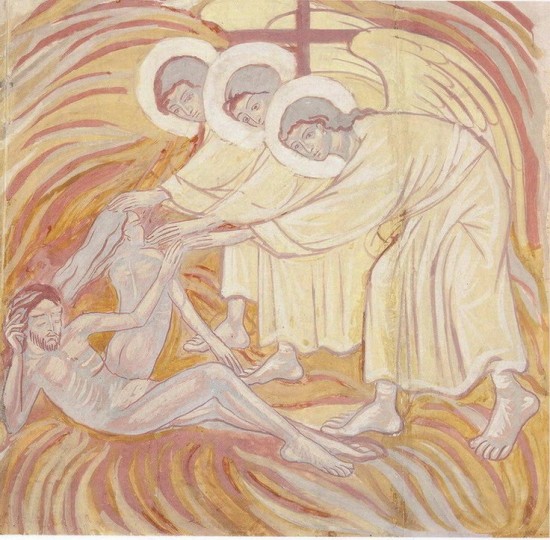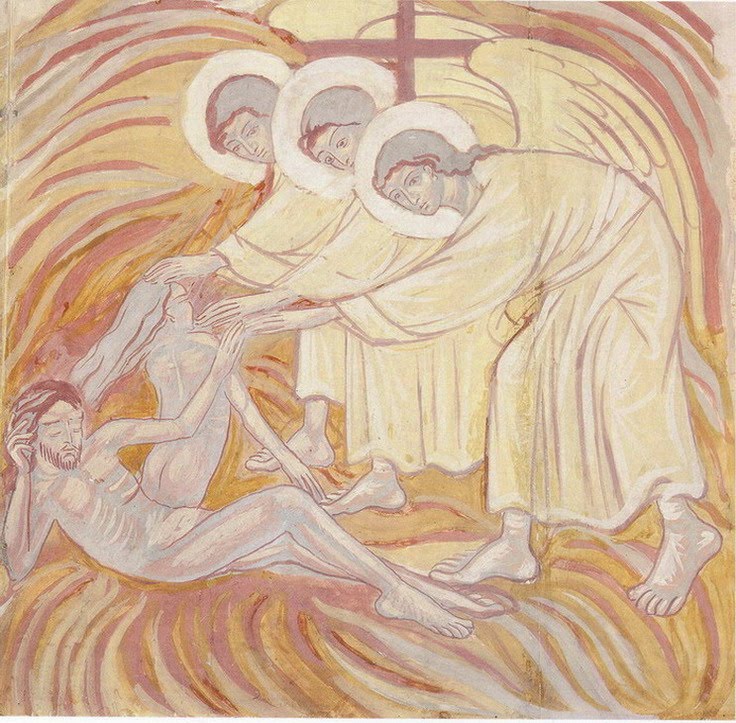It’s About the Us, I Tell You
A Little Warm Up
If you walk through a bookstore (okay, or, if you click through Amazon), my books are usually tucked into categories like “Faith & Spirituality.” So when I started shifting this blog’s focus to subjects like connectedness and friendship, it could have been seen as a move away from my previous, faith-related content.
That’s true in one respect.
A topic like friendship opens this blog up to more readers, since–faith background or not–we all have a stake in the way humans relate to each other. Social bonds matter to everyone. But I should also tell you that, for me, delving into connectivity (and friendship) is a move toward one of the deepest expressions of faith I know, not a move away from it.
Faith, in my experience, is inherently social. Friendship and community, in fact, are among the life elements that most reveal God to me.
I’m convinced that God sometimes dwells most obviously in the space between people.
[Tweet “I’m convinced that God sometimes dwells most obviously in the space between people.”]
So trust me when I say, although this blog’s sub-topics have shifted over time; there’s actually more of Jesus behind these words, not less.
I am going to be spending the next few Wednesdays (and probably many after that) trying to piece together how faith informs my ideas about community. It will be an imperfect and amateur process, full of lots of places for you to add expertise or push back, but it’s my hope you’ll help think through this together.
Put Your Highlighter Away
In my early twenties, before I wrote Beyond the Broken Church and Portable Faith, I was inspired by how Jesus aligned himself with people who society marginalized.
During this time, I remember I asked one of my friends–a religion prof–what themes from Scripture jumped out to him along these lines. “Oh you must mean Luke, the presenter of The Compassionate Jesus.” He responded.
And I remember I was immediately disappointed. (Lesson: You cannot please an idealistic twenty-something.)
The Gospel of Luke was a perfectly valid suggestion, of course. I was disappointed only because I sensed it was a little bit fraudulent to take a giant yellow macro-highlighter and mark out one book as THE PLACE where Jesus related to people on life’s margins.
I wanted to believe that the ties between God and the unwashed masses was there in ALL of it. That it was in all the Scriptures, tradition, logic, experience–ALL of it. In a roundabout, read-between-the-lines way, I give you this as explanation for why this post today starts in Genesis and not Luke.

“Creation of Adam and Eve” from
The Chapel of St. . Basil the Great House Co, by
Sister Johanna Reitlinger
Verses About Friendship? It’s the “Us”, I Tell You
So you, like me, probably paused the first time you read Genesis 1 verse by verse. There God is. In the beginning, Him.
And then somewhere in the sequence of plants-and-birds-and-fish-and-rest, there appears a verse in which God casually drops this phrase into the conversation: “Let us make humankind in our image.” Yes, Us.
The narrator continues, without skipping a beat, as if what God has just said is all just a part of everyday teeth-brushing routines, and he has no idea this will spark question marks over the heads of readers for generations to come.
When God says, “Let Us…,” though, we in the modern world do a sentence double-take. Who exactly would God be joining forces with in this the-earth-is-barely-more-than-void state?
When God say “Let Us make humankind in our image?,” who could this “Us” possibly be?
Who was even around then?
And it’s not just this one verse that raises this question. There are other similar references, like, “Behold, the man has become like one of US, knowing good and evil.” And, “Come, let US go down, and there confuse their language.” (Genesis 3:22; 11:7)
(There’s also similar phrases in Isaiah 6:8, I Kings 22:19-23, Job 15:8, and Jeremiah 23:18 if you want to fast forward a little.)
So who is this US?
While history doesn’t seem to agree on the answer, it does at least seem to agree on the question. The Hebrew verbs “make” and “go down” and “confuse” as well as the pronoun “us” are all plural. So there IS an Us, scholars agree.
But there are lots of theories about who the “us” is.
Here’s a few of the divergent theories that seek to explain this:
1. Some think the “Us” refers to other gods. Since the term used here for God is “Elohim” (a plural form of God), some have speculated God is speaking to lesser gods. They’d also say verses like Exodus 12:12, 18:11, and 20:3–which refer to God being greater than or against other little-g gods–prove that such deities existed.
Along these lines, some also suggest the writer was influenced by the Canaanite mythology of his day; that he was writing his Canaanite understanding of heavenly order into the Biblical account.
Since I imagine God is at work in history to preserve Scripture, and since most of the Old Testament purposefully contrasts Israel’s faith with belief in foreign gods, a reference to other deities doesn’t seem like the most likely explanation to me. (If people hypothetically believed a reference to other gods would’ve even been included in the first place, doesn’t it seem like someone would’ve edited it out later when they got to the Ten Commandments?)
To be fair, there are mentions of “spirits,” “hosts,” “holy ones,” and “sons of God” in the Bible though, which help explain how some readers came to think the “Us” in this scenario could be some sort of heavenly council of lesser deity or deity-like spiritual beings (1 King 22:19-21, Ps 89:5-7, Job 1:6, Nehemiah 9:6).
2. Some say the “Us” is royal language. Some people say the word ‘Us’ is a “majestic plural” in Hebrew grammar, which is sort of like saying God is using the Royal We. Or, a variation of this might be that God is thinking aloud to himself, in some sort of solo-deliberation.
3. Some say the “Us” is angels. Jewish rabbis seemed to have always held that the “Us” is angels, which is a reasonable conclusion given Genesis 3:22-24. Here God says, “Behold, the man has become like one of Us, to know good and evil” right before he placed cherubim to seal off the Garden of Eden. It’s not too big of a leap to think he might be addressing these angels here.
We don’t have any Biblical reason to believe angels (who were created beings themselves) could create with God as Genesis 1:26 implies, but it’s not illogical to believe God could charge another being with the task of creating if he so pleased, right?
4. It’s the Trinity. There’s these other evangelical theologians, Keil and Delitzsch, who also attribute the “Us” to majestic language, but not before first acknowledging that the early church hadn’t always seen it this way.
” ‘We’ was regarded by the fathers and earlier theologians almost unanimously as indicative of the Trinity … “
And they’re right. Flip over here and you can get a sample of how many early thinkers viewed “Us” as a reference to the Trinity.
Critics of this one might say imposing a later concept like the Trinity over Genesis doesn’t make sense. After all, Luke 2 didn’t mention Christ being consciously in God’s presence before Creation. In fact, it says Jesus increased in wisdom as he aged, which seems to suggest that Jesus couldn’t be the one who knew good and evil in Genesis 1:26 (unless, when he later came to earth, he was just pretending to not know…or–more likely, in my mind–unless he was somehow surrendering that knowledge.)
Because most of us agree it is sometimes appropriate for later Biblical writers to connect the events of their time to past writings, it’s conceivable to me this unknown “Us” could be the Trinity. In theory, all the Scriptures point to same source of promise, right? I can entertain that since this same promise was somehow building through history, the same bearers of this promise (God the Father, God the Son, God the Spirit) might’ve been at work in all of it–beginning to end.
Plus Jesus is referred to as a participant in creation, the one “through” whom God made the world. All things came into being through him, John 1:3 says. All things were created through him and for him, Colossians 1:16 echoes. And God spoke to us in his son, through whom he made the world according to Hebrews 1:1-2.
This doesn’t seem to paint the detailed picture of the Father, Son, and Holy Spirit co-creating that some want to see, but the fact that later it is said Jesus occupies the same throne room as God (Acts 7:55, 1 Tim 5:21, Hebrews 12:22-24), it’s not an enormous stretch to think God might’ve been communing with Jesus at Creation in some mysterious way.
I add the clause “in some mysterious way” because this phrase summarizes how I hold a lot of unknowns in Scripture. Unlike a theologian whose field perhaps trains or even requires him or her to take and defend a specific position on an ambiguous portion of Scripture, I’m more likely to offer what I consider to be an educated guess or two accompanied by a “holy shrug.”
I don’t find the need, or maybe it’s better to say I don’t find it wise, (given the fact I’m a cloudy-seeing mortal, and not even a trained theologian at that) to drive it all to one clean conclusion.
For Genesis 1:26, then, I’m content to lean toward the idea that God was either talking to angels or to a being we would later relate to as Jesus.
The thing I am drawn to, in either case (or even if some other idea I’m unaware of ended up being true) is the US. No matter what explanation you favor, scholarship suggests there was an us.
That all of life began with a God in relationship, inviting other beings to move with him.
Given the context, this doesn’t seem particularly surprising. This is the same God who seemingly walked with humans in the Garden, who was grieved when the community of humans turned against each other, who marked Cain to provide him the possibility of living in community without falling victim to a revenge-killing, who instituted a covenant intended to bless all families of earth.
However you look at it, he seems to be a communal God, right? Let’s start there then…with a relational God.
Source: Keil & Delitzsch, Commentary on the Old Testament, Peabody: Hendric., 1989, Vol. I, p. 62.
Photo source: Highlighters, Bookstore



Darrel October 8, 2014 (7:01 pm)
It’s a little off topic, but Anne Lamott said “I didn’t need to understand the hypostatic unity of the Trinity; I just needed to turn my life over to whoever came up with redwood trees.”
That to say I agree with the holy shrug part too.
Sarah October 8, 2014 (10:01 pm)
I like it. :)